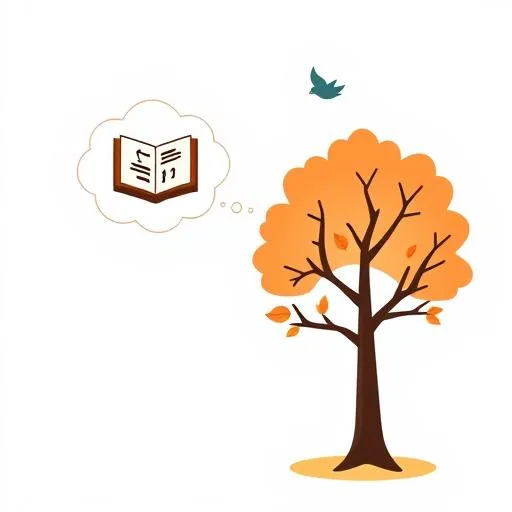
Walking home from the school run just now, with that perfect, crisp September air feeling full of new beginnings, I was thinking about the future. It’s something we parents do, right? We see headlines about the skills our kids will need, and suddenly the word ‘literacy’ isn’t just about books. Now, it’s ‘AI literacy.’ But here’s what gets me fired up—recent research whispers a secret we already hold: our kids’ human magic matters most.
More Than Just Knowing the Buttons: Why Human Judgment Matters

It’s tempting to think future-ready means tech-ready. But guess what? Employers aren’t drooling over coding wizards—they’re cheering for thinkers who can question results and ignite ideas. A recent report spilled the beans: mastery of tools isn’t the star here. The real spotlight? How we shape something broken or bland into brilliance.
This is the stuff that makes me pump my fist! Imagine planning a weekend getaway. Sure, you can tap an app to book hotels. But finding that quirky little museum your kid will geek out over? Helping them redesign a botched itinerary when rain ruins the picnic? That’s adaptability. That’s judgment. And trust me, these are marathon skills—not sprinters!
The Real-Deal Superpowers: Curiosity, Judgment, and Heart

You know those Aha! moments toddlers have when their tower collapses? That’s curiosity’s raw power. The job market isn’t after handbook skills—they’re hungry for people who wonder, probe, and dream bigger. Let me keep it real: last week, my daughter was tinkering with one of those drawing apps. It generated a spiral shape, but she crowed, “Appa, look! The dragon needs a WING!” Suddenly the screen had scales, firebreathing, and a proud dad beaming!那个 technical gizmo just flexed her creativity muscle—it didn’t start the show. She did.
Here’s the kicker: none of this needs fancy lesson plans. We’re already coaching these abilities daily when we let them explore tangents instead of micromanaging. Staying zoomed-in on creativity’s messy process—not its polished product—is what builds future-proof mental muscles whether they’re drawing dragons or building a robot friend out of recycled yogurt cups.
How We Can Nurture These Skills (Hint: It’s All About Play!)

Let’s spill the tea: successful parenting isn’t Pinterest-perfect crafts. It’s those gritty, paint-everywhere sessions where “oops!” means discovery. Or letting screen time晃变成 collaborative missions instead of solo battles. Remember folks—we’re not just raising mini-coders. We’re cultivating thinkers who’ll ultimately redefine technology’s boundaries.
When tackling AI skills:
- Celebrate “why’s this cool?” over “how do I push this button?”
- Play doubting Thomas together – checking machine choices makes Tech-auntie’s outputs useful!
- Lead meandering adventures to train adaptability: urban treasure hunts, backyard ecosystems that never follow coloring book rules
Here’s where this clicks for everyday families: give screens chore limits. Sync them with outdoor treasure hunts your little detective charts using digital compass skills. Watch how a Google search for “rocks like bears” turns into an epic scavenger hunt—stone grizzlies feeding that innate, tiger-roaring curiosity.
How Mistakes Make Mighty Minds
Last Thursday’s hike was a little chaotic. A rogue squirrel apocalypse? Not quite—my daughter just got completely obsessed with a folding map walking disaster (“Dad! We circled the playground SEVEN times!”). Instead of yanking control, we made it our adventure: analyzed “what went wrong,” optimized her navigation steps using sidewalk stick markings, and celebrated her trouble-shooting by choreographing panicked robot dances over the flawed route. Sounds nuts? That’s exactly how resilient thinkers learn!
You see, when we position kids as decision-makers—not just button-pushers—they start rewriting technology’s rulebook. A sad-looking AI skyscraper? Suddenly it’s a rocketship crash-landing pad! An egg-shaped drone? Why, it’s obviously a futuristic ostrich’s lunchbox.
Ultimately? Future jobs aren’t about chasing the robot parade. They’re about doing exactly what parents have always done: mentoring human hearts where instinct beats algorithms. The next time you’re schooling your kid on Alexa’s dos and don’ts, remember—your job’s not to drill commands. It’s to ask, “What could MAKE this better? How would YOU fix it?”
This isn’t just tech prep—it’s soul-shaping. And lucky for us, the core ingredients have been with us longer than any clicking chip:
- “Let me try first!” confidence (even when they flub it… especially then)
- Snap decisions—like yesterday when my six-year-old rerouted our cookie-baking AI after one burnt batch
- Feeling the gut-check intuition: “Does this really help? Why?”
AI literacy won’t get lost in the noise—we’re still raising kids who’ll use tools fearlessly. But behind every bold decision? That’s where childhood’s magic lies. I’ve said it once, I’ll say it again: that mix of wild curiosity and heartfelt judgment isn’t taught. It’s caught—between the pizza-making messes, the listens to Adele on purposeful off-key singalongs, and helping your astronaut-in-training realize that sometimes robots need storytelling nutmegs more than error-free routines.
Before You Freak Out Over Future Fear Monsters:
Don’t overthink it like I did on our recent folding hill hike (yes, real thing). In the end, the heart of parenting hasn’t changed: helping our kids see every problem as creative rocket fuel. Ever looked at a chunk of broken code and realized your kid built something better from its remnants? Let me know in the comments—I’m dying to hear YOUR little Gen-Z savant stories!
